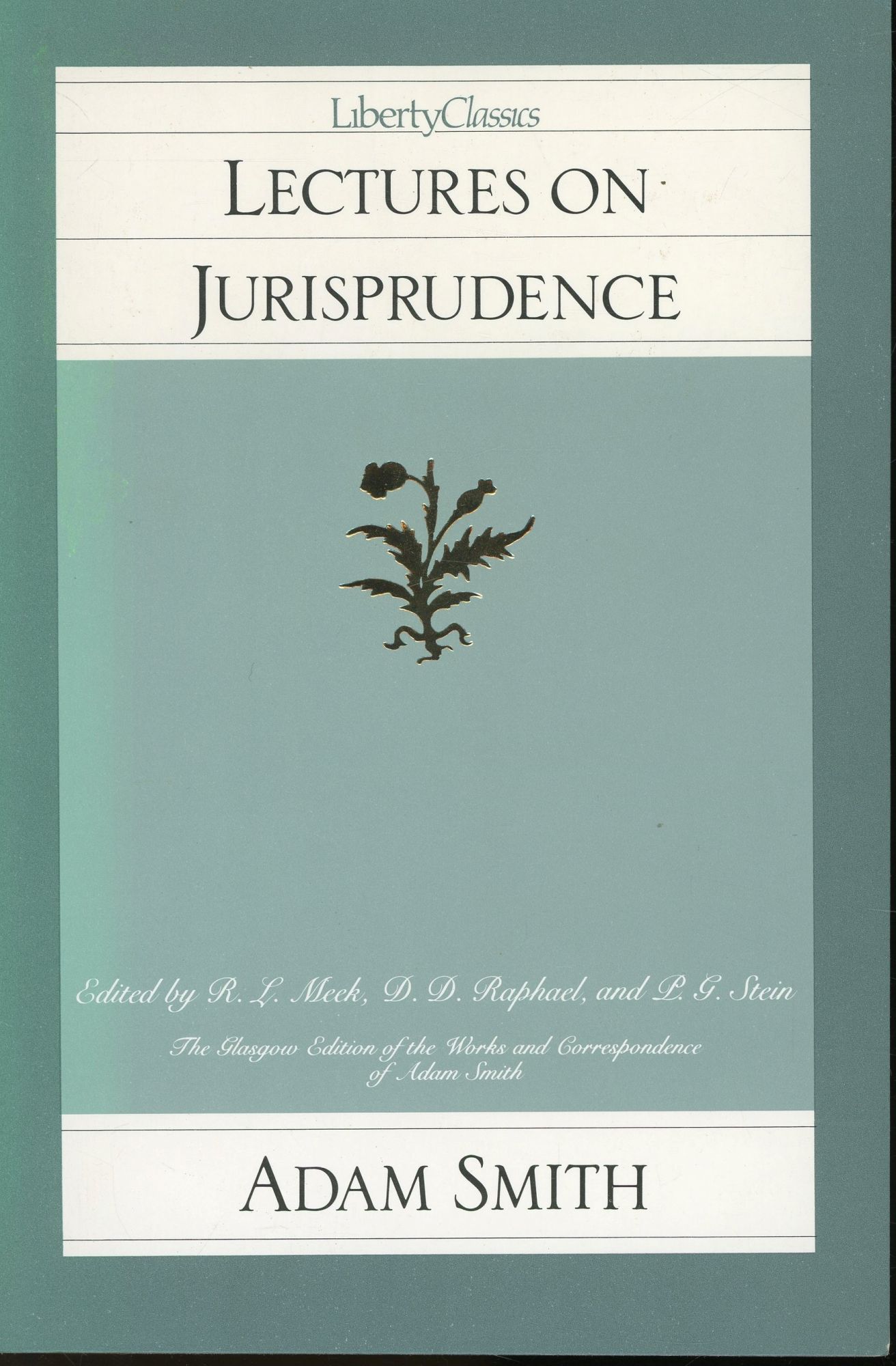Newly released
This book is new and will be uploaded as soon as it becomes available to us and if we secure the necessary publishing rights.

Lectures on Jurisprudence Book PDF
(0)
Author:
Adam SmithNumber Of Reads:
75
Language:
English
Category:
Social sciencesSection:
Pages:
690
Quality:
excellent
Views:
1101
Quate
Review
Save
Share
Book Description
Smith’s Lectures on Jurisprudence, originally delivered at the University of Glasgow in 1762–1763, present his “theory of the rules by which civil government ought to be directed.” The chief purpose of government, according to Smith, is to preserve justice; and “the object of justice is security from injury.” The state must protect the individual’s right to his person, property, reputation, and social relations.
Building on his Theory of Moral Sentiments, Smith argues that the state must act as an impartial spectator, judging when an individual has been injured. The state must then design and apply civil and criminal laws to prevent further injuries and punish transgressors. Laws are also the means by which the state promotes public prosperity. Thus, regulations concerning trade, commerce, and production must be crafted so as to encourage rather than interfere with our productive capacities.
Adam Smith
Adam Smith is a Scottish moral philosopher and economist. He is considered the founder of classical economics and a pioneer of political economy. He is best known for his two classic books: The Theory of Moral Sentiments (1759) and An Inquiry into the Nature and Causes of the Wealth of Nations (1776). It is one of his most important effects, and the first work dealing with modern economics, and was known for short, as “The Wealth of Nations.” He called for promoting individual initiative, competition, and freedom of trade, as the best way to achieve the greatest amount of wealth and happiness. Smith is considered the father of modern economics, and he is still considered one of the most influential economic thinkers in today's economics. In 2009, Smith was named among the "Greatest Scots" of all time, in a vote on a Scottish television channel. Smith studied social philosophy at the University of Glasgow and at Balliol College, Oxford, and after graduating gave a successful series of public lectures at the University of Edinburgh. He then obtained a professorship in Glasgow teaching moral philosophy, during which time he wrote and published The Theory of Moral Sentiments. Smith later worked as a tutor, which allowed him to travel around Europe, where he met some of the great thinkers of his day. Smith then returned to his country, and spent about ten years working on his book The Wealth of Nations, which was then published in 1776. Smith then died in 1790 at the age of 67.
Book Currently Unavailable
This book is currently unavailable for publication. We obtained it under a Creative Commons license, but the author or publisher has not granted permission to publish it.
Rate Now
5 Stars
4 Stars
3 Stars
2 Stars
1 Stars
Lectures on Jurisprudence Quotes
Top Rated
Latest
Quate
Be the first to leave a quote and earn 10 points
instead of 3
Comments
Be the first to leave a comment and earn 5 points
instead of 3